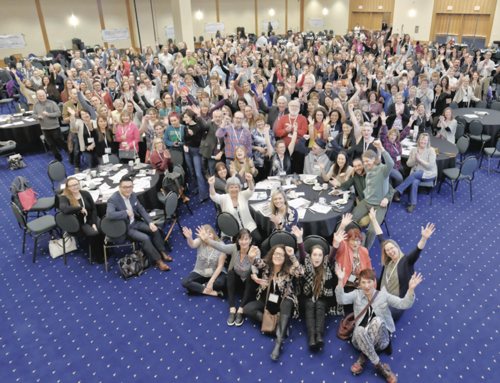Congress wraps up Child and Youth Mental Health and Substance Use Collaborative
The Legacy Congress of the Child and Youth Mental Health and Substance Use (CYMHSU) Collaborative was held 9 and 10 March 2017 in Vancouver at the Sheraton Wall Centre.

The Legacy Congress of the Child and Youth Mental Health and Substance Use (CYMHSU) Collaborative was held 9 and 10 March 2017 in Vancouver at the Sheraton Wall Centre. Close to 600 people came from all over BC to share their experiences, activities, and outcomes under the unique initiative that for the last 4 years has aimed to improve the system of care for children, youth, and families with mental health and substance use concerns.
Majority of Local Action Teams continue through 2017
While 55 of the 64 Local Action Teams (LATs) under the Collaborative are continuing to wrap up activities until December 2017, the congress was the last official large meeting of the group, which now numbers more than 2600 people, including seven health authorities, three ministries (MOH, MCFD, and MEd), hundreds of physicians, and numerous community partners such as police, school districts, community agencies, Aboriginal groups, and others. Youth and parents are embedded in every Local Action Team and have assumed leadership roles in every area of the Collaborative. The congress was a chance to report on progress to date, introduce new resources, and inspire final activities in the last year.
Where we have been and where we are going
Keynote presentations included perspectives on the 4-year initiative from its earlier founders, youth and families, Aboriginal participants, physicians, evaluators, and more. Breakout sessions detailed the progress of 4 of the 11 working groups, as well as activities of 22 of the 64 LATs. Remaining LATs and working groups were featured in a storyboard session on the afternoon of 9 March. Details of the work can be found at: www.sharedcarebc.ca/initiatives/cymhsu-collaborative.
Collaborative legacies
Two legacy items were launched at the congress:
• A new website (www.collaborativetoolbox.ca) was created to provide a one-stop shop for CYMHSU tools and resources created and collated by the Collaborative LATs and working groups to meet their objectives. The site provides access to items like suicide prevention toolkits, handouts, posters, common consent forms, ER protocols, enhanced learning modules, and more. These can be shared and adapted by LATs or community partners to support mental health and substance use activities now and in the future.
• The new Legacy magazine was also distributed at the congress and is also available at www.collaborativetoolbox.ca. Legacy tells the in-depth story of the Collaborative—how it formed in spring 2013 and grew from a small initiative in the Interior to encompass communities in all five health regions. Using engaging stories and pictures, the magazine details the diverse activities under the initiative: increasing access and reducing stigma through mental health literacy events and projects, creating clearer pathways to care, and increasing the capacity for communities to respond to the mental health and substance use needs of their young people and their families.
Impact of childhood trauma
The long-term impact of childhood trauma and neglect on future health and mental wellness was a particular focus of the congress. The keynote dinner speaker, Laura Porter from Seattle, is one of America’s leading experts on the Adverse Childhood Experiences (ACEs) Study, conducted by the US Centers for Disease Control and Kaiser Permanente. In the late 1990s, the study followed more than 17 000 people and found that the higher the number of adverse experiences, trauma, or neglect in childhood the higher the rate of chronic disease, addiction, or mental health issues across the lifespan. For example, for every ACE, the risk of suicide increases up to fivefold as does the risk of alcohol abuse or drug addiction (see www.cdc.gov/violenceprevention/acestudy/index.html). Porter discussed how to use this powerful science, which is now being confirmed in studies around the world, to change policy and practice, fostering healthier, more resilient individuals and creating more nurturing families and safer communities.
Physician leadership continues
More than 60 specialists and GPs involved with the Collaborative met on the eve of the congress, committing to continue to work together to foster a transformed system. The group is leading activities in 2017 to facilitate the integration of ACE’s evidence into physician practice, and as part of the spectrum of antenatal and early childhood care in BC. The physicians present agreed to write a letter to the premier of BC to ask that the focus on child and youth mental health and substance use not end with the Collaborative.
The Collaborative has been funded since spring 2013 by the Shared Care Committee, with significant contributions from the GP Services and the Specialist Services Committees, all joint collaborative committees representing a partnership of Doctors of BC and the Ministry of Health.
—Val Tregillus
Project Director CYMHSU Collaborative
hidden
This article is the opinion of the Shared Care Committee and has not been peer reviewed by the BCMJ Editorial Board.
